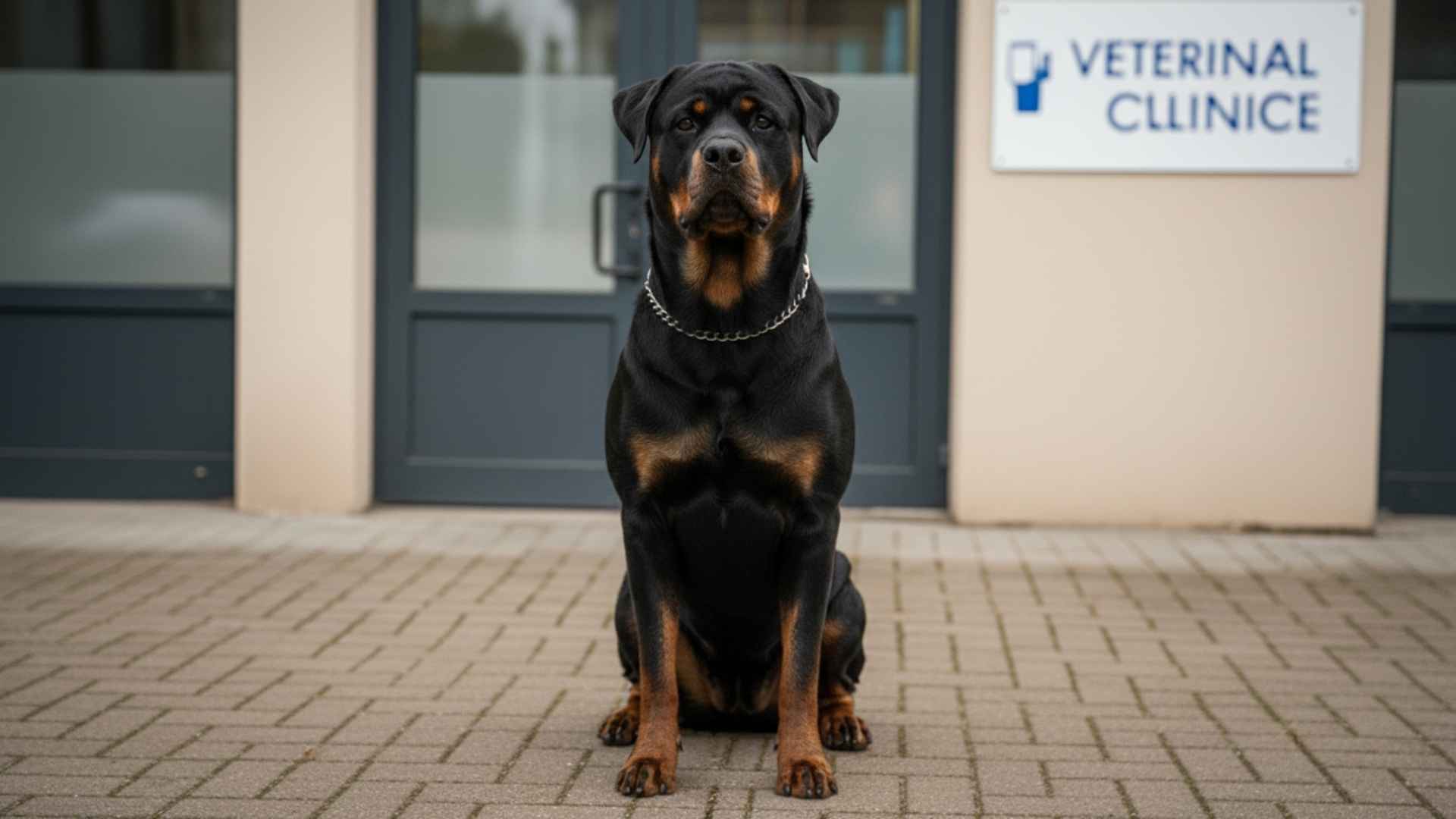Have you ever wondered why a veterinary clinic might need guard dogs in the first place?
While clinics are safe havens for healing, they also face unique security concerns. From after-hours protection to deterring break-ins, the right dog can be both a reliable protector and a reassuring presence for staff and visitors.
The challenge, of course, is balance. A clinic needs security without sacrificing a calm, healthy environment where pets and their families feel comfortable. This is where certain protective dog breeds truly shine.
They combine loyalty, sharp instincts, and the ability to sense people’s intentions with a temperament that, when guided by proper training, can adapt well to a caring family environment.
According to Wikipedia, dogs were first domesticated to watch over people, livestock, and property—one of their oldest and most trusted roles in human history. Today, that same instinct makes certain breeds perfect protectors in modern spaces like veterinary clinics.
In the article, we’ll explore the best guard dog breeds for veterinary clinics—dogs that offer both security and companionship where it matters most.
Best Guard Dog Breeds For Veterinary Clinics
1. German Shepherd
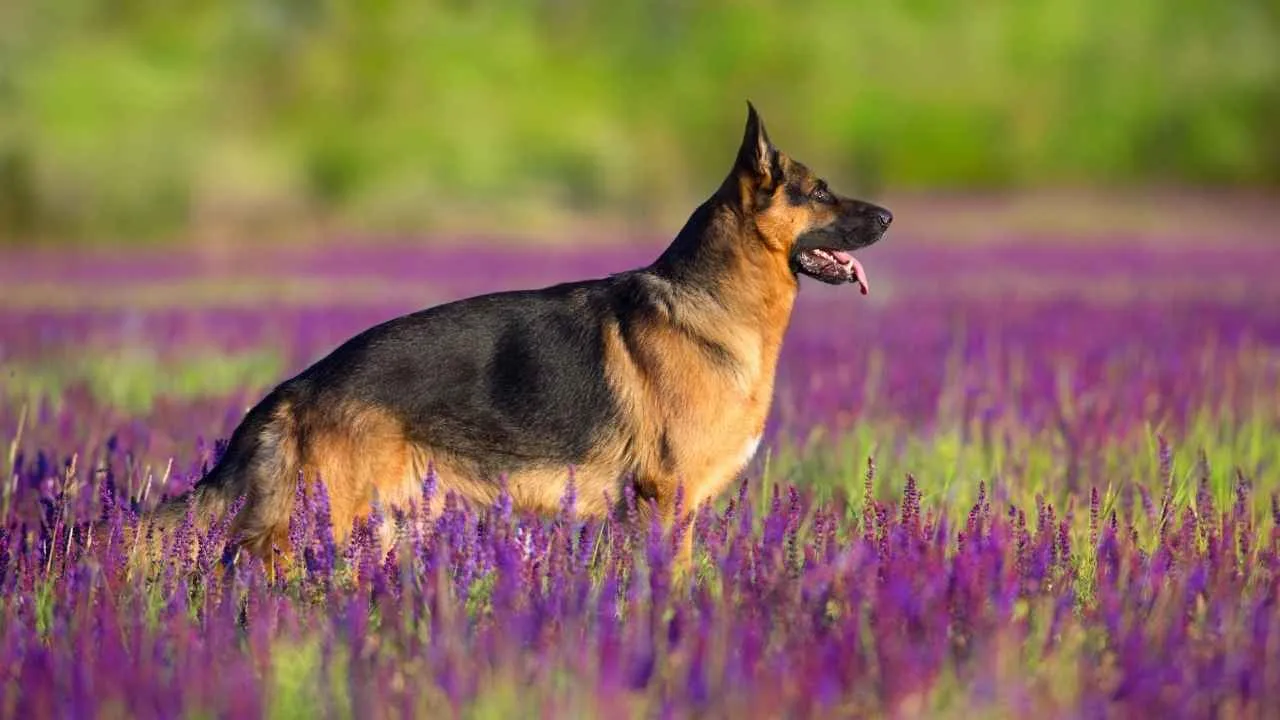
Ever met a dog that looks like it could star in every action movie?
That’s the German Shepherd—confident, alert, and always ready to step in when needed.
German Shepherds are considered one of the best dogs because they combine brains with bravery. Their loud bark alone can stop strangers in their tracks, while their steady temperament makes them dependable guard dogs in busy environments.
With proper obedience training, they learn how to stay calm around patients and staff while still being protective when it matters. Another reason they’re often called the best guard dogs is their ability to balance protection with affection.
A well-socialized German Shepherd can be a great family pet, adapting to life with small kids, staff members, and even other pets in the clinic. Their loyalty runs deep, and once they bond, they’ll guard both people and place with unmatched devotion.
Fun Fact:
This dog is ranked as one of the smartest dog breeds, often excelling in police and service work because of their ability to learn commands quickly.
2. Doberman Pinscher
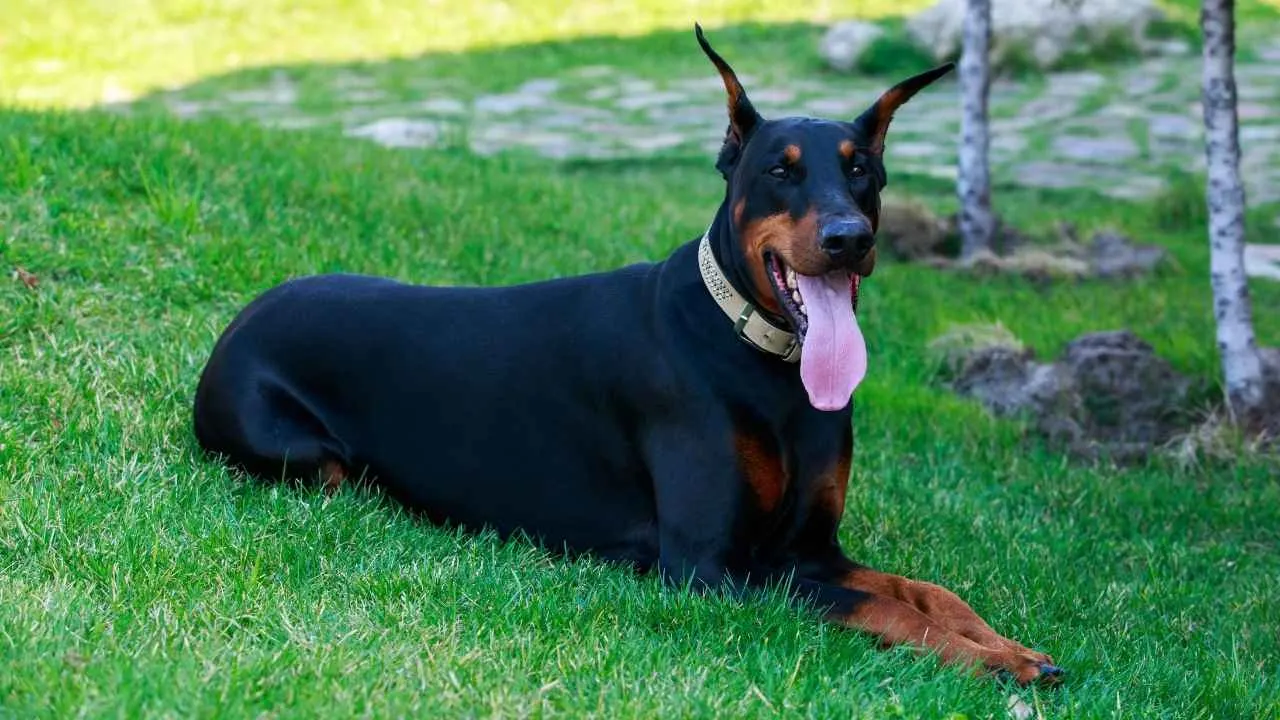
If sleek speed and sharp focus had a mascot, it would be the Doberman Pinscher—a dog that looks like it’s always ready for a secret mission.
Dobermans are among the best dog breeds because of their unmatched alertness and courage. They’re athletic dogs with the stamina to protect large areas, making them excellent choices for clinics that need both a visible presence and quick response.
Their protective nature and loud bark serve as instant deterrents to unwelcome strangers. They are known for their great attacking qualities. When properly trained, Dobermans learn when to stand guard and when to relax, ensuring they don’t overwhelm visitors or patients.
What makes them excellent guard dogs is their ability to balance strength with loyalty. A Doberman raised with socialization becomes a perfect companion and a popular family pet.
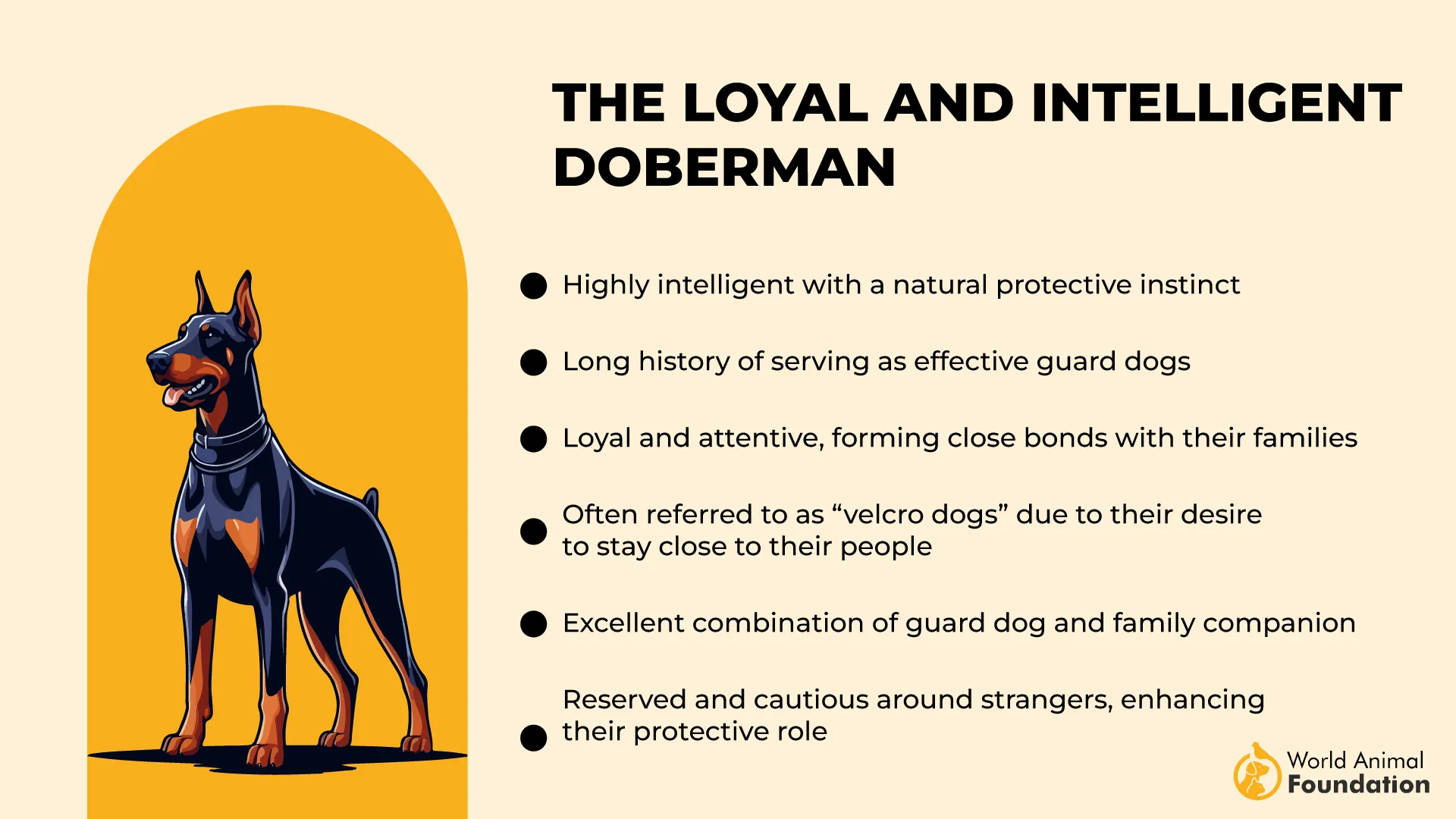
They’re often described as extremely loyal, bonding deeply with their handlers, whether that’s a clinic worker or a family at home.
Fun Fact
According to Britannica, Dobermans were initially bred in the late 1800s by Karl Friedrich Louis Dobermann, a German tax collector who wanted a loyal yet fearless guard dog to accompany him on his routes.
3. Rottweiler
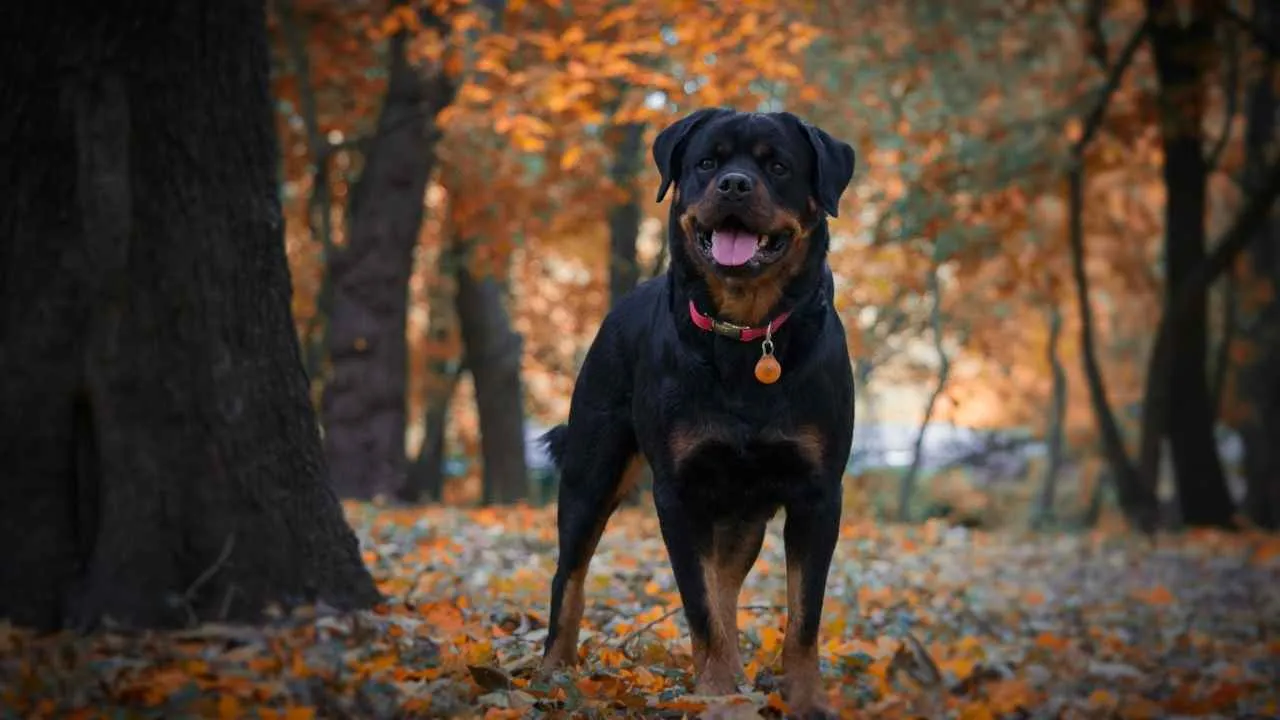
Ever met a dog that looks like it could guard a castle but still insists on being a lapdog at home?
That’s the Rottweiler for you.
Rottweilers are one of the protective guard dogs because they combine physical strength with a calm, confident presence. Their muscular build alone can make intruders think twice, but what makes them stand out is their steady temperament.
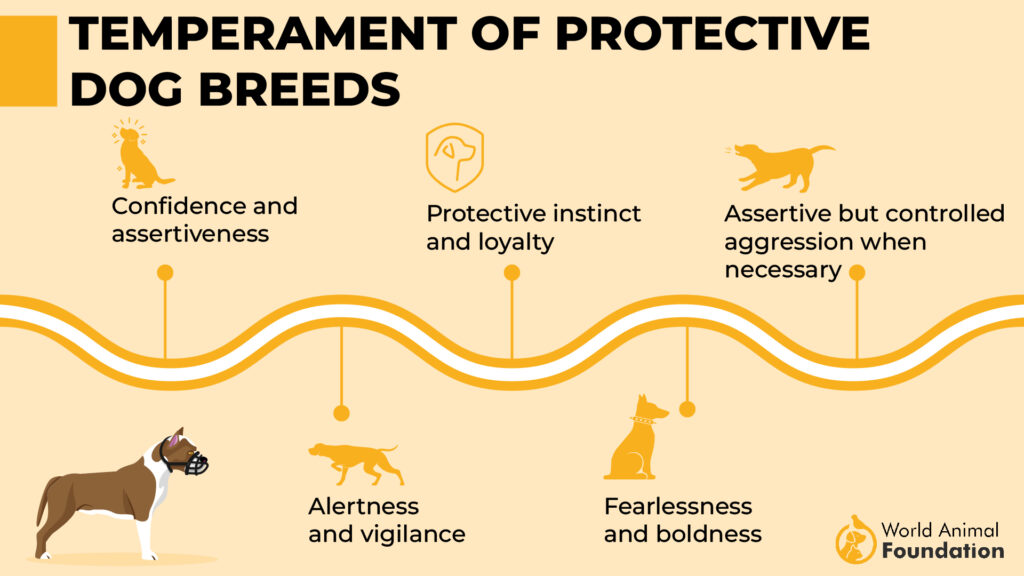
A well-trained Rottweiler doesn’t overreact—it carefully observes, then acts only when necessary.
This makes them ideal for busy clinics, where a balance between protection and calmness is essential. These dogs require stern training to balance their strength with discipline. Beyond their guarding skills, Rottweilers are intensely loyal and thrive when they feel they have a purpose.
Whether that’s keeping watch over a clinic’s property or simply staying close to their owner, they are happiest when given a role to fulfill.
With early socialization and consistent training, these dogs become dependable guardians who can be gentle with staff, visitors, other animals, and even small children while still being fearless protectors when needed.
Fun Fact
WebMD noted that Rottweilers are among the oldest herding and guard breeds, tracing back to the Roman Empire, where they were used to drive cattle and protect soldiers’ camps.
4. Belgian Malinois
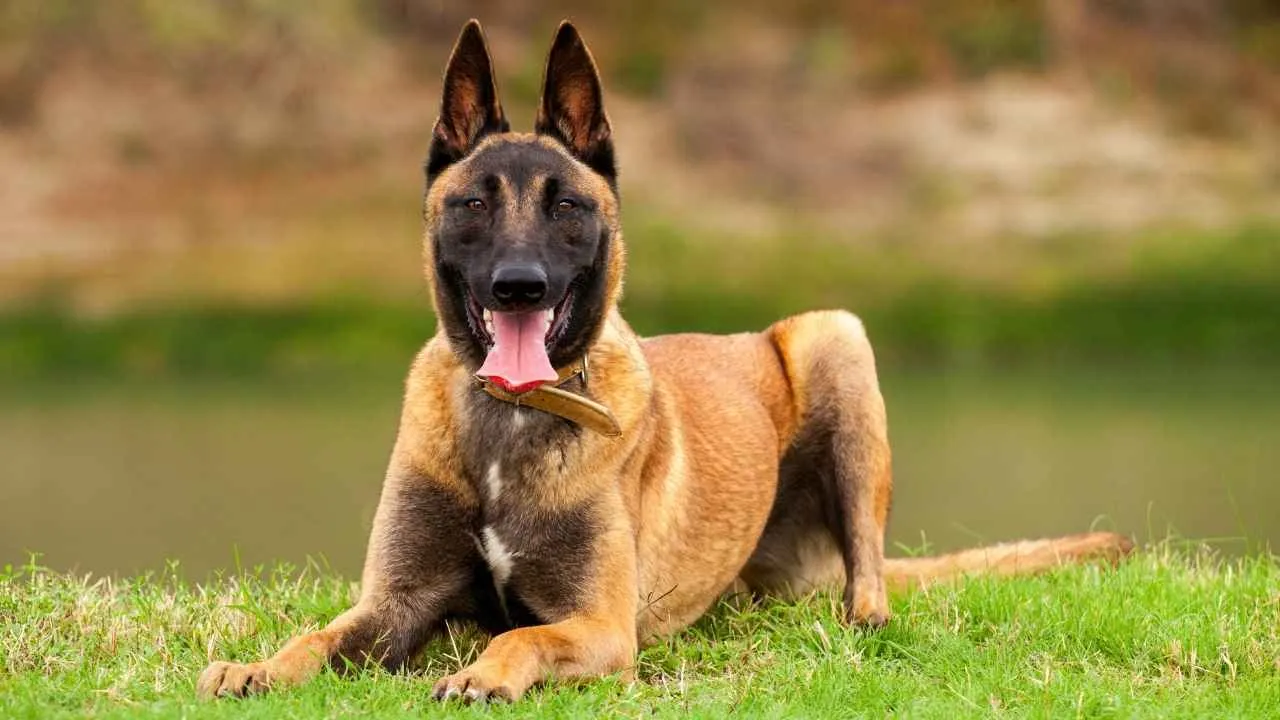
What do you get when you mix lightning-fast reflexes with an unshakable work ethic?
The answer is the Belgian Malinois.
Known for their intense focus and high drive, Belgian Malinois are among the best dog breeds for veterinary clinics because they don’t just protect—they anticipate.
These dogs are sharp, quick-thinking, and incredibly responsive to commands, which makes them highly reliable in controlled environments like clinics.
Their alert nature ensures they notice even the most minor changes, whether it’s a stranger entering or unusual movement on the property. But what makes them even more valuable is their versatility.
Belgian Malinois thrive on mental stimulation and physical activity, meaning they excel not just as guard dogs but also as loyal companions and working partners.
They may try to dominate other dogs, so consistent leadership is important. Pet parents should start training early to help them channel their boundless energy.
With proper guidance, this energetic breed learns to differentiate between real threats and everyday activity, making them excellent protectors in busy, people-filled spaces.
Fun Fact
The Belgian Malinois is often the preferred choice of military and police units worldwide, even over German Shepherds, because of their agility and endurance.
5. Giant Schnauzer
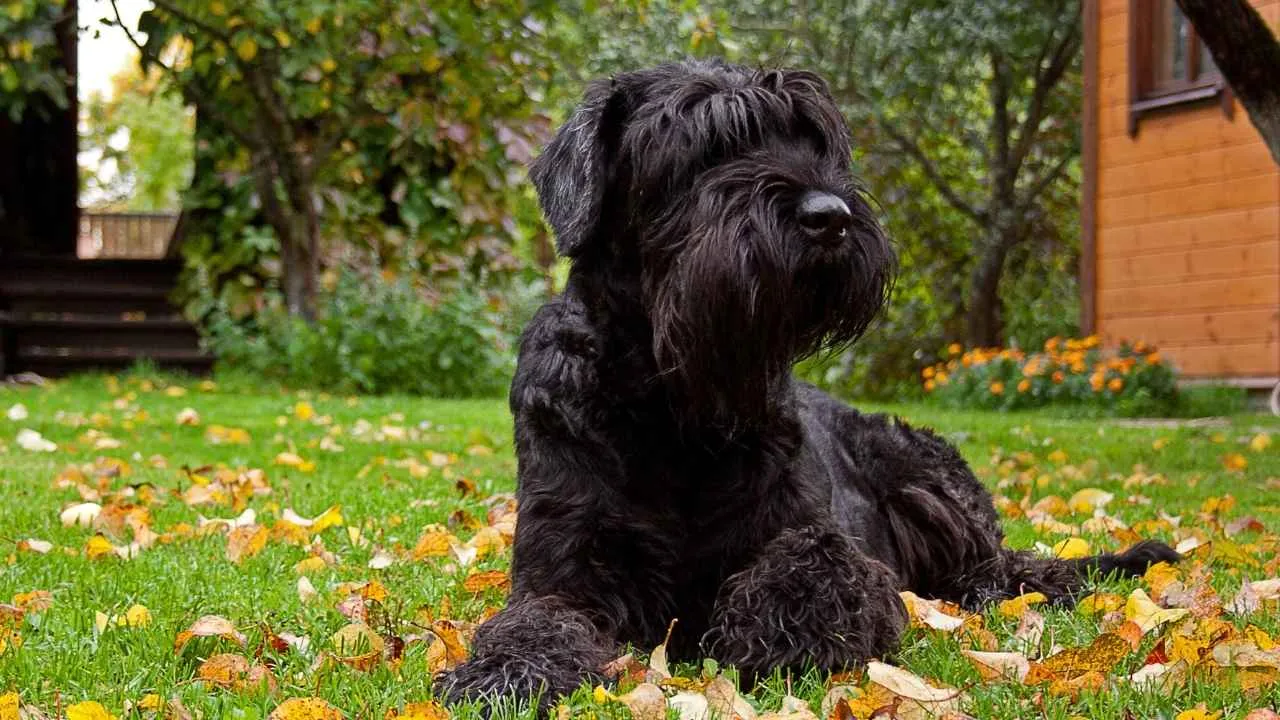
Imagine a dog that looks like a wise professor with a beard but has the strength of a bodyguard—that’s the Giant Schnauzer.
The Schnauzer is one of the best dogs because of its commanding presence and unwavering loyalty.
Standing tall and muscular, they can be intimidating to outsiders, yet they’re known for being deeply devoted to their families and handlers. In a clinic setting, their protective instincts and watchful eyes ensure a safe environment without unnecessary chaos.
What makes them stand out is their combination of intelligence and independence. These large dogs were initially bred to drive cattle and guard breweries, which gave them both stamina and problem-solving ability. This hardworking furry breed is as intelligent as it is loyal.
With physical and mental stimulation, Schnauzers become disciplined protectors who can distinguish between routine visitors and genuine threats. They need regular exercise, including daily walks, to stay balanced. Their confidence and energy make them both effective guardians and engaging companions.
Fun Fact
Despite their name, Schnauzers aren’t the largest of the Schnauzer family—they just look giant compared to their Standard and Miniature relatives.
6. Boxer
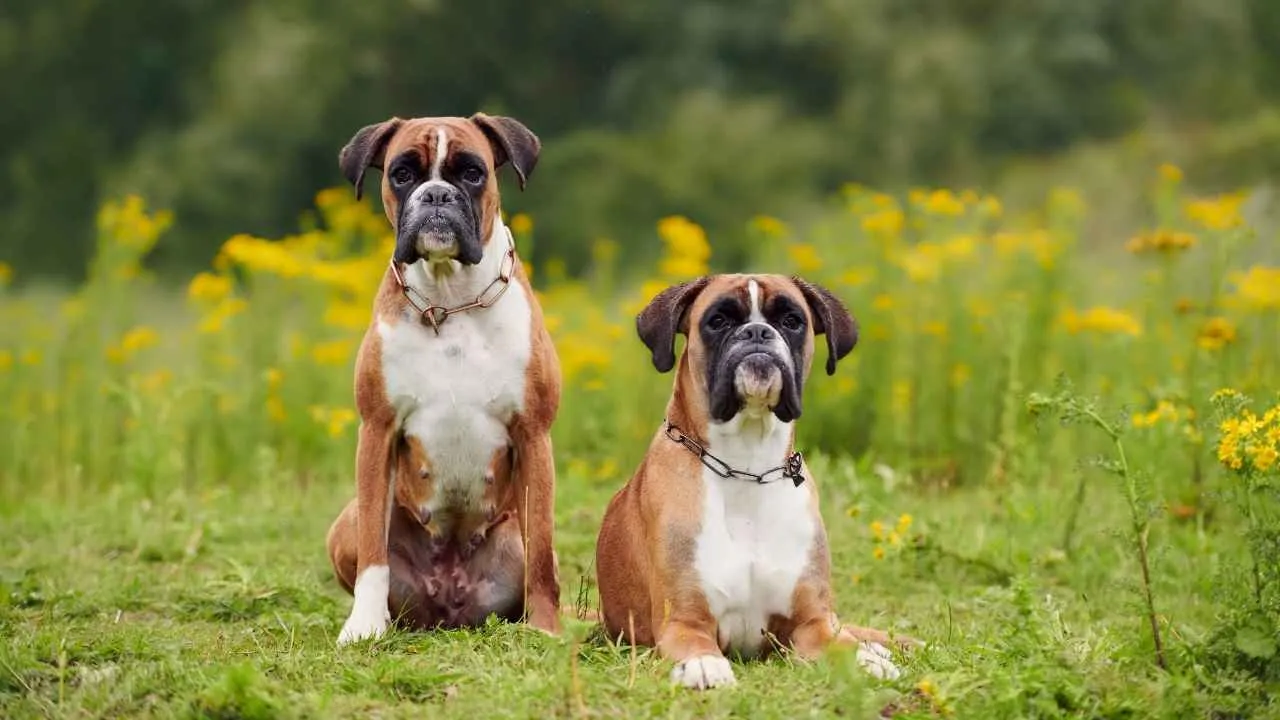
Who says a guard dog can’t also be the class clown?
The Boxer proves that protection can come with a wagging tail and a goofy grin.
Boxers are among the best dog breeds for veterinary clinics because they balance alertness with playfulness. Despite its size, a Boxer is often seen as a mild-mannered dog with children.
Their muscular frame and natural guarding instincts make them reliable protectors, but their cheerful personality helps soften the atmosphere in a clinic where anxious pets and owners may need comfort.
They’re known for being exceptionally loving family pets, which translates well into a people-focused environment like a veterinary practice. Another strength of the Boxer is its high energy level and enthusiasm.
Originally bred as working dogs, they thrive when given jobs to do, whether that’s keeping watch, greeting visitors, or simply offering companionship to staff. With obedience training, their protective side can be channeled effectively, creating a dog that guards without being overly intimidating.
Fun Fact
The Boxer got its name from its playful habit of standing on its hind legs and using its front paws to “box” during play.
7. Akita
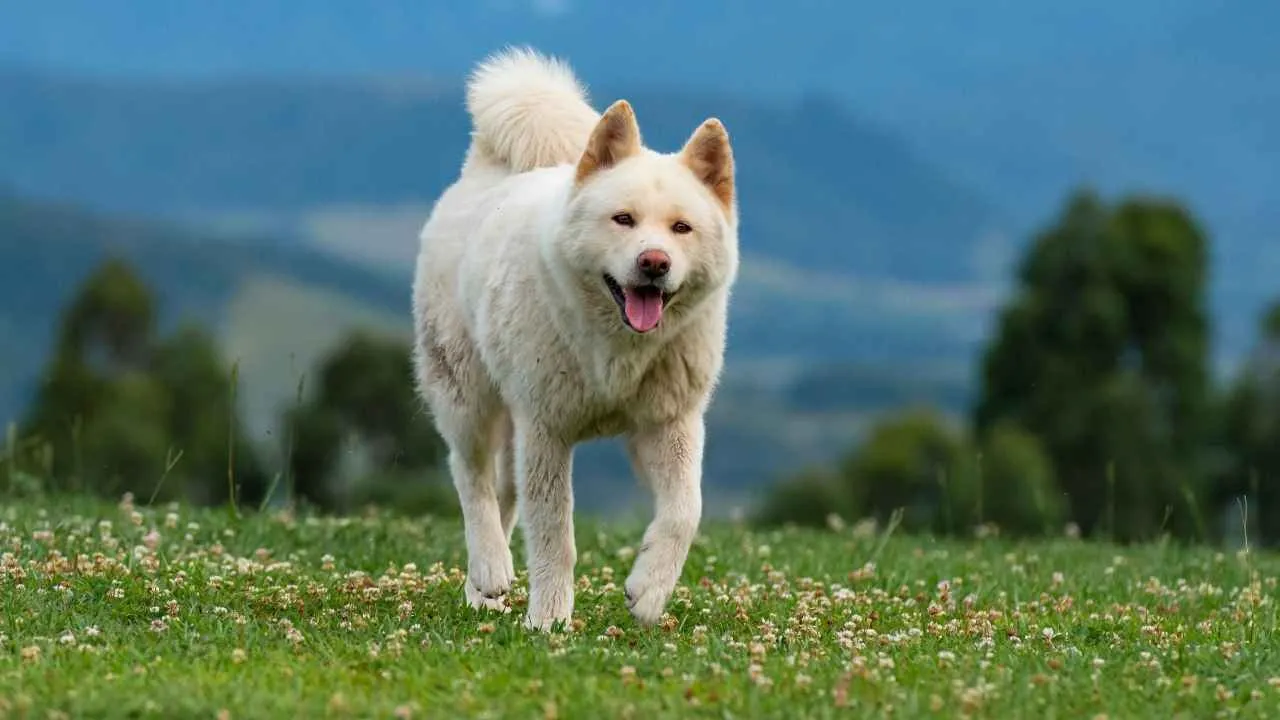
If loyalty had a face, it might just look like the calm yet powerful Akita.
Akitas are considered one of the excellent guard dog breeds because of their instincts of protection and deep devotion to their families. Their quiet strength makes them reliable guardians, especially in environments where calm confidence is more effective than constant barking.
In a clinic setting, an Akita’s steady presence can create a sense of security without overwhelming the atmosphere. What sets Akitas apart is their dignity and independence. Originally bred in Japan to guard nobility and hunt large game, they carry themselves with confidence and authority.
With young age socialization and consistent training, they become disciplined protectors with a gentle nature toward their people but cautious with strangers. Their ability to sense and respond to unusual situations makes them excellent watchdogs for busy veterinary practices.
Fun Fact
In Japan, Akitas are seen as symbols of health, happiness, and long life. It’s common to give small Akita figurines to families as a gesture of well-being.
Conclusion
Choosing the best guard dog breeds for clinics is about finding the right balance between protection and compassion.
Breeds like the German Shepherd, Doberman Pinscher, Rottweiler, Belgian Malinois, Schnauzer, Boxer, and Akita each bring unique strengths to the table, from loyalty and intelligence to calm confidence and athleticism.
With proper training, socialization, and guidance, these dogs become more than just protectors—they become trusted partners who help keep clinics safe while maintaining an environment of care and comfort.
After all, a veterinary practice isn’t just about healing animals—it’s also about creating a secure space where people and their pets can feel at ease.


